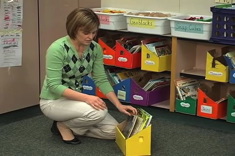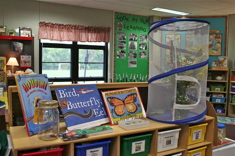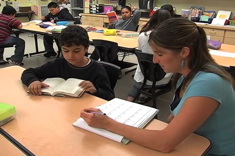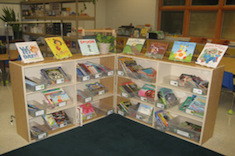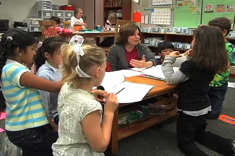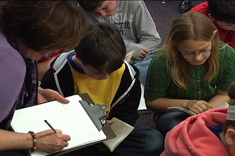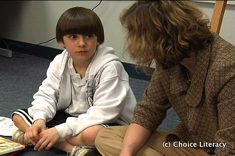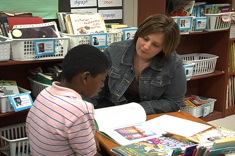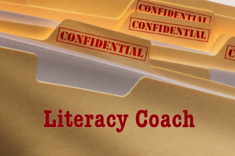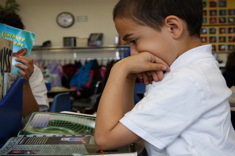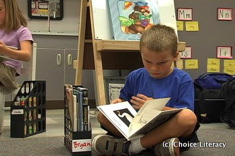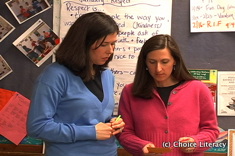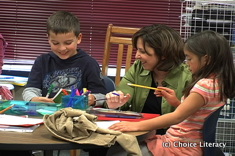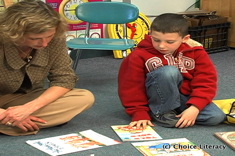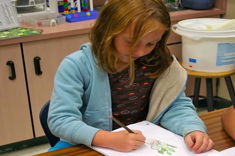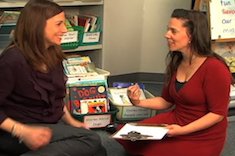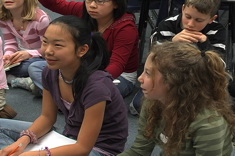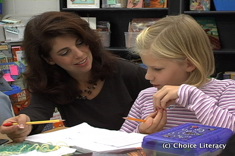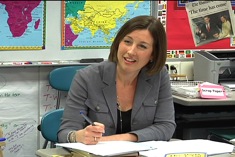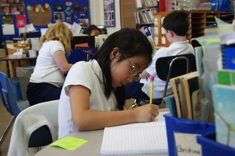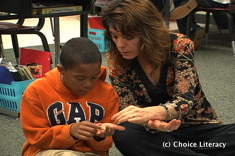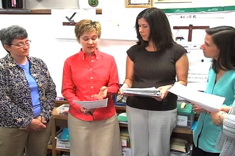Articles
Here is where you’ll find all the latest print features from our contributors. If you’d like to browse specifically by grade level, topic, or contributor, you can use the links in the right sidebar.
Latest Content
Reorganizing Books in the Reading Support Classroom
Katie DiCesare helps her mom, a reading support teacher, reorganize her materials to better serve students.
The Nuts and Bolts of the Family Inquiry Project
Julie Johnson explains how a family history inquiry project in her first-grade classroom builds technology, literacy, and research skills as students explored many cultures. This article is the second in a two-part series.
Coaching Codes
A code of conduct is created to outline the standards and rules of behavior that guide an organization. Effective codes spell out “unspoken rules” as well, so that everyone can be successful. Heather Rader thinks through what a useful code for coaches might look like.
Ready-to-Go Readers’ Theater Books
If you want to do more with readers’ theater to promote fluency, but can’t afford one of those expensive kits, you’ll enjoy this booklist. Shari Frost has compiled her favorite readers’ theater books with texts and illustrations students love.
Giving Up the Whole-Class Novel
When teachers shift to a reading workshop model, sometimes they struggle most with the move from whole-class novels to more individualized reading. Shari Frost has advice for helping teachers work through the transition, as well as ways to ensure students still have some shared reading experiences with their classmates.
What Messages Do We Give Students with Our Classroom Library Design?
Franki Sibberson describes how the topics and arrangements of baskets in the classroom library give strong messages about reading to students.
When Does Level Matter? Being Efficient with Small Group Instruction
When does level matter in grouping students for reading instruction?  Franki Sibberson shares her latest thinking and a template to use in organizing groups.
I Need a Hero: Finding a Place for Comics and Graphic Novels in Our Classrooms
Terry Thompson provides five easy steps for incorporating the use of more graphica and comics in your teaching:
Assessment Beyond Levels: The Reading Grid
Is there a great divide in your classroom between numerical data from assessments and your anecdotal notes? Cathy Mere bridges the gap with her class reading grid, a nifty tool for recording and analyzing a whole classroom’s worth of student assessment data on one page. A template is included.
Teaching Revision to Struggling Writers
Clare Landrigan and Tammy Mulligan offer three strategies to use during writing conferences with struggling students.
Using Student Conferences to Build Book Choice Skills
Franki Sibberson provides focus questions and a template to help choose books with students for independent reading.
Help! Our Grade-Level Team Meetings Are Awful! (LITERACY COACH CONFIDENTIAL)
Here’s some advice for dealing with disastrous team meetings.
Assessing Professional Development: Focus on Feedback
Jennifer Allen details her professional development formats, and the crucial role feedback plays in their success.
Rethinking the Study of Nonfiction in the 21st Century
Franki Sibberson reflects on her nonfiction writing unit, and realizes she emphasizes research skills at the expense of the craft of nonfiction writing. She explains how she revamps the unit to help students focus more on writer's craft in nonfiction texts, including some new mentor texts and different ways of using writer's notebooks.
Book Boxes – Voices from the Classroom
How do you organize and use book boxes? Every teacher has their own twist on the answer to this question. Choice Literacy contributors give examples from grades 1-5 of how they use book boxes and bags with their students.
Relevant Support for New Teachers
Jennifer Allen finds she only learns what new teachers really need when she builds a relationship and rapport with them.
“This Could Be Our Family”: Books for Children with Lesbian and Gay Parents
Andie Cunningham considers the diversity in how “families” are defined in children’s literature, as well as how some newer books can support children with lesbian or gay parents in our new booklist.
Using Picture Books to Teach Theme in Grades 3-6
Many students in the upper elementary and middle school grades shun all picture books, yet they are an invaluable resource for teaching sophisticated literacy concepts. Franki Sibberson explains how to teach the concept of theme using picture books in this booklist.
Is “Just Right” Still Just Right?: Helping Children Select Appropriate Books
Clare Landrigan and Tammy Mulligan consider how the incredibly useful and widely accepted “just right” term can sometimes limit how students think about book selection and their identities as readers. This essay includes sample lessons to help expand the ways young readers think about and discuss their reading preferences.
Infographics and Lists in Science Notebooks
Science notebooks are a wonderful tool for building outdoor observation and writing skills. Andrea Smith explains how writing in the notebooks leads students to explore different nonfiction text features like infographics and lists.
You Get What You Ask For: The Art of Debriefing
Heather Rader explores the fine art of asking specific questions during coaching debrief sessions.
Helping Students Deal with Distractions
Clare Landrigan and Tammy Mulligan offer lesson suggestions for helping students self-monitor and deal with distractions during literacy workshops.
New Notebook Essentials
We’ve all had the experience of reading a professional book and disagreeing with some of the ideas from the author. It’s just a little more surreal when you wrote the book! Aimee Buckner participates in her school’s study group reading of Notebook Know-How, and finds some of her thinking about notebooks has changed over the past few years.
It’s Not the Assessment — It’s How You Use It
Clare Landrigan and Tammy Mulligan discuss ways teachers can get the most out of any assessment data collected early in the year, moving beyond numbers for insights into how to structure and target instruction.
A Thanksgiving Take on Differentiating Instruction
Kathy Collins looks around the holiday table and discovers that differentiating instruction is similar to hosting a Thanksgiving feast.
Making Data Analysis a Motivating and Worthwhile Process
Tammy Mulligan and Clare Landrigan have ideas for staying motivated while analyzing data. If you’re drowning in assessments, there are a few lifelines in this piece.
Writing Do-Overs: ERPs in the Classroom
ERP. The sound can't help but make you grin. It's Heather Rader's acronym for Explicit Revision for Peers, a series of one-minute kinesthetic writing routines to help students learn how to help each other kindly during writer's workshop.
Returning to Our Creation Chambers: Supporting Experienced Teachers
Jennifer Allen reflects on her experiences as a teacher, and develops ways to help the veteran teachers she works with return to their “creation chambers.”
The Power of Wonder Questions
Andrea Smith writes about how she uses wonder questions in her science curiculum.
Creating Shared Learning Experiences for New and Veteran Teachers
Laughter or struggles – the experiences we share are the ones that bind us together. Jennifer Allen mulls over how to foster more of those shared experiences for the colleagues she coaches.
Browse Content By
Type
Category
- Assessment Tools
- Big Fresh Archives
- Booklists
- Choice Numeracy
- Classroom Design
- Common Core
- Community Building
- Conferring
- Content Literacy
- Digital Literacy
- English Language Learners
- Equity
- Family Relations
- Free Samples
- Guiding Groups
- Leadership
- Literacy Coaches
- Mentor Texts
- Minilessons
- New Teacher Mentors
- Podcasts
- Poetry
- Quote Collections
- Reading Strategies
- Self Care
- Struggling and Striving Learners
- Talking and Listening
- Teacher Study Groups
- Teaching Reading
- Teaching Writing
- Word Study and Vocabulary
Author
- Melissa Quimby
- Nawal Qarooni
- Gwen Blumberg
- Julie Cox
- The Lead Learners
- Hannah Tills
- Josie Stewart
- Ruth Metcalfe
- Mallory Messenger
- Becca Burk
- Jodie Bailey
- Vivian Chen
- Mary Brower
- Tiffany Abbott Fuller
- Stephanie Affinito
- Ruth Ayres
- Leigh Anne Eck
- Heather Fisher
- Shari Frost
- Julie Johnson
- Suzy Kaback
- Gigi McAllister
- Shirl McPhillips
- Melanie Meehan
- Cathy Mere
- Debbie Miller
- Tara Barnett and Kate Mills
- Tammy Mulligan
- Dana Murphy
- Bitsy Parks
- David Pittman
- Brenda Power
- Heather Rader
- Matt Renwick
- Mandy Robek
- Christy Rush-Levine
- Gretchen Schroeder
- Jen Schwanke
- Brian Sepe
- Katherine Sokolowski
- Stella Villalba
- Jennifer Vincent
Grade Level
Choice Literacy Membership
Articles
Get full access to all Choice Literacy article content
Videos
Get full access to all Choice Literacy video content
Courses
Access Choice Literacy course curriculum and training

